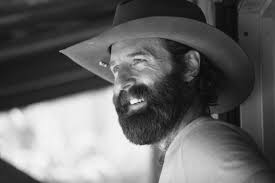By Sean Dietrich
The last thing you probably want to read about is baseball, even though today was the last day of the Major League season. Believe me. I get it. Whenever baseball fans talk about their game, they get this punch-drunk tone in their voice.
It’s enough to make you roll your eyes and say, “Oh, grow up, would you?”
But we can’t grow up. If we could, we still wouldn’t because that would be the end. And I’m not ready for the end. Not yet.
I once knew an 84-year-old man with dementia. He lived in a nursing home. Every afternoon, his daughter would play a VHS video tape of the 1963 World Series. And each time he watched, it was the first time.
I interviewed him. I doubt he knew I was even standing beside him. I will never forget when he held my hand and said, “This is our game, isn’t it, Benny?”
“My name’s not Benny,” I said.
But he was too emotional to care. And I never forgot that.
My childhood was baseball heavy. I went to games before I even knew how the game was played. I was barely old enough to hold my bladder. But there was my father, talking to me about relief pitching, and 300 hitters.
He wore a ball cap. He was lean. Redheaded. When the sun hit his fair skin he would burn, and his freckles would get darker. He would keep score on a scorecard with a pencil—back when people still did that. And he cussed more freely at games since my mother wasn’t around.
In elementary school, he baptized me in red dirt by teaching me to slide into second base, feet-first. And I still remember my first home run. I was 7.
It might have been the greatest day of my father’s life. It was the fourth inning. Jason Davenport was pitching. My father stood by the dugout, giving me the slow, motivational clap all parents give.
The wind up. The pitch.
I swung. I hit.
And for a few seconds in time, I was somebody. My father met me at home plate. He didn’t want me to see the water in his eyes.
“Are you crying?” I asked.
“No,” he said. “Allergies are bad this time of year.”
My childhood was filled with ball games. It was the era of Bob Horner, Gene Garber, George Brett, Darryl Strawberry, Dale Murphy and Glenn Hubbard.
I have an autographed ball from Glenn Hubbard on my mantle. It reads: “Your friend.” He has no idea who I am, but we’re friends. All ball players are friends.
I once saw my father get so emotional over a game that he stayed up all night, sitting in his truck with the radio going. And after one particular World Series, he threw me over his shoulders and ran through the backyard screaming.
When he died, I couldn’t watch baseball. I couldn’t stand the game. It hurt too much. I would try to keep up with scores, but I couldn’t. The last thing I wanted to think about was a stupid game that was once loved by a dead man.
But I finally got over it. And my life kept going. New players replaced old ones. Radios were replaced by TVs. High-definition replaced rooftop antennas. Goodbye, Harry Caray. My voice dropped, I learned how to drive. Girls tore my heart out. The country changed.
A month after the World Trade Center attacks, I watched the World Series with my mother on television. The President of the United States stood before 54,000 fans in Yankee Stadium and threw the ceremonial first pitch. My mother and I cried together. We hung a flag from our porch. It had nothing to do with the game.
After I got married, I took my wife to see games in Atlanta. We cheered for a losing team, but we did it together. And I once watched the World Series in a bar in Cedar Key, sitting beside an old man who was passed out in a pile of peanuts and beer.
And when the Atlanta Braves clinched the playoffs this year, I was in a Nashville hotel room. I was standing in front of the TV set, wearing a complimentary bathrobe. My wife and I jumped up and down, holding each other.
She asked why I was crying.
“Allergies,” I said.
But it wasn’t that. It‘s that you grow up. Whether you want to or not. And one day, you realize you’re so far from childhood that it might as well have happened to someone else.
The little boy you were is gone. So are most of his big ideas. You’re a middle-aged man now, and your freckles get dark when you stay in the sun too long.
But once, you were a baby. Once, you were a boy who wanted to be like his father. It was imitation, combined with a little hero worship.
Because he was a man who shared his red hair with you. He shared his ballpark hot dogs. His love. And when it came to baseball, he was no longer the steelworker, or the workaholic, but the poet.
Whenever you watch American young men chase a five-ounce ball across green grass, it doesn’t matter if you’re an 84-year-old man in a wheelchair, or if you’re me.
This is our game.
Isn’t it, Benny.
Sean Dietrich is a columnist, and novelist, known for his commentary on life in the American South. His work has appeared in Southern Living, the Tallahassee Democrat, Southern Magazine, Yellowhammer News, the Bitter Southerner, the Mobile Press Register and he has authored seven books.

